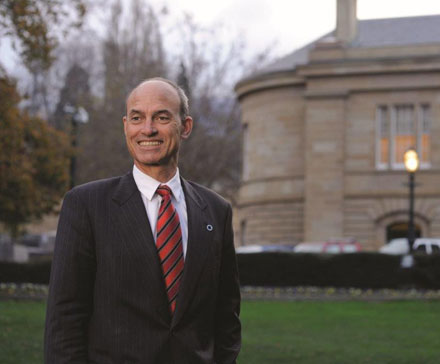
Guy Barnett
The Tasmanian Opposition has yet to decide whether it will support or oppose the Government’s plan to open selected forests for logging in 2018. Source: ABC News
The Hodgman Government plans to table legislation when Parliament resumes in March to open up more than 300,000 hectares of land across the state.
It is a plan vehemently opposed by the Greens, but it is unclear how Labor will vote.
Labor spokesman and Upper House MP Craig Farrell said the party had yet to finalise its position.
“Well we don’t know. Of course, it’s possible we could vote against it, it depends on the legislation,” he said.
Unlocking the forests in question winds back a key plank of Labor’s forestry peace deal.
The Government will use its sizeable majority to pass the legislation through the Lower House, but there is uncertainty in the Upper House.
The majority of independent Legislative Councillors the ABC has spoken to have yet to formally decide which way they will vote.
Some believe too much land was locked up in the first place, while other are questioning the need to access the addition timber at all.
While the legislation will unlock more than 300,000 hectares of forest, Forestry Tasmania’s own modelling shows only about 50,000 hectares will be accessible.
Two logging coupes in question are near the popular tourism attraction, the Three Capes track.
Resources Minister Guy Barnett re-iterated his position about the coupes in question.
“In terms of the Three Capes track we’ve made it very clear before there are no forestry operations in the Three Capes Track, or adjacent to the Three Capes Track,” he said. “That’s not planned.”
But the Minister will not categorically rule out logging the two areas in question and is resisting calls to remove the area from logging maps altogether.
The Greens Leader Cassy O’Connor is concerned.
“These places should be put into reserves and this Government should be saying we will not be logging those forests, we recognize that they are worth more standing,” Ms O’Connor said. “They’re worth a huge amount to the tourism industry.”





